The 419th Flight Test Squadron conducts a proficiency flight with a B-1B Lancer at Edwards Air Force Base, California, Jan 6, 2023.
EDWARDS AFB
01.06.2023
Video by Adam Bowles
412th Test Wing Public Affairs
The 419th Flight Test Squadron conducts a proficiency flight with a B-1B Lancer at Edwards Air Force Base, California, Jan 6, 2023.
EDWARDS AFB
01.06.2023
Video by Adam Bowles
412th Test Wing Public Affairs
A unique capability that is able to operate on different terrains under all weather conditions, the Marines are a vital NATO asset. As amphibious troops and able to bridge the gap between the land and the sea, they are held at high readiness to deploy rapidly if a crisis strikes.
Many NATO countries have Marine capabilities and they often train and exercise together in different Allied countries to hone their skills and practise working alongside one another.
In this short documentary, we look at the Dutch and German Marines in Scotland, the Portuguese Marines on the rivers of Lithuania, the UK Royal Marines training in Norway, and NATO’s largest Marine contributor, the US Marine Corps, which exercises across the European continent.
DENMARK 11.01.2023
Natochannel
By Pierre Tran
Paris – France, Germany, and Spain, the partner nations of a European future combat air system, are due to pare down the short list of architecture options for a new generation fighter jet by the middle of next year, an air force officer said.
“There is an important milestone next year, with the four or five architectures narrowed down to two or three,” said the officer, who works on the French team on the future combat air system (FCAS).
“This is an important moment,” the officer said.
The industrial partners on FCAS submitted in September 2020 five options for the architecture, and expected that to be whittled down to two the following year, Airbus Defence and Space said December 2020.
That short list of five had been selected from a list of 10 architecture options, a source with knowledge of the project also said in December 2020.
The new generation fighter (NGF) is the critical first pillar in the three-nation project for a European air combat system, and a core element in the next generation weapon system (NGWS), along with remote carrier drones, and a combat cloud for command and control.
“It is a question of the modernization of air operations for tomorrow, to go faster, stronger, further, and higher,” the officer said. “Air superiority is the precondition for any operation, to allow freedom of action.”
There will be a high level of automation in the new fighter, but in the fog of war, it will be a pilot who decides whether to fire a nuclear weapon, not an automated system, the officer said.
The French armed forces minister, Sébastien Lecornu, is due to go to Madrid April 28 for a meeting with his German and Spanish counterparts on FCAS, the ministry said.
Adversaries are making great effort in fielding modern, high-technology and stealthy threats, the officer said, and failure to keep up would lead to a downgrade of French capability.
Senior air force officers of the partner nations, working as a team, will pick the architecture options, the officer said. There is no tension with German and Spanish officers on designing the fighter to carry a nuclear weapon and fly from an aircraft carrier, two French operational requirements for the sixth generation fighter.
A steering committee of senior officers of the three air forces, and an officer of the Direction Générale de l’Armement, the French procurement office, pilot the FCAS project, which seeks to fly the new fighter by 2040, eventually replacing the Rafale and Eurofighter Typhoon.
The steering committee held a physical meeting in January, the first gathering of officers for some time, as the Covid virus had forced meetings to a virtual basis.
The committee oversees a combined project team, based in Arcueil in the suburbs of the capital, with some 20-25 officers working in two teams, managing operational aspects and working with industrial partners which signed a key contract Dec. 16 2022 .
That contract, worth €3.2 billion ($3.5 billion) and running three years from 2023 to 2025, covers the studies in phase 1B, now under way.
There were “kick-off” phase 1B meetings in mid-March, with companies including Airbus DS, Dassault, Indra, MBDA, MTU, Safran, and Thales sharing out work on the seven FCAS pillars, namely the fighter, engine, drones, cloud combat, sensors, simulation, and stealth.
The goal is to arrive at a single architecture by the end of phase 1B in 2025, allowing entry into phase 2, to build and fly a technology demonstrator for the fighter and two classes of drones in 2028/29. Ground stations for combat cloud are part of that package. The two types of remote carrier will include the advanced loyal wingman type, flying with the manned fighter, and lower cost drones, which do not need to return from mission.
The total budget, comprising phase 1B and the option for phase 2, will be almost €8 billion, the French defense ministry has said.
There is a common operational vision on the European project, as set out in the High Level Common Operational Requirement Document (HL CORD) agreed by the chiefs of staff of the three partner nations, and backed by a letter of intent by the defense ministers, said an article titled The Future Air Combat System (SCAF): A European Defence Policy That is Moving Forward.
The article, by Eva Portier, a procurement officer, and air force general Jean-Pascal Breton, appeared in Revue Defense Nationale, a monthly publication, marking the 2019 Paris air show.
Work on research and technology – seen as a bottom up approach – seeks to test and de-risk disruptive new technology. There are expectations the demonstrator aircraft will be as close as possible to the fighter to be built in phase 3 in the 2030s decade and enter service in 2040.
There is also a top down approach, drawing on the joint concept study (JCS) prepared by
Airbus and Dassault. The industrial partners said in a 2019 joint statement the two-year study would “conceptualise the different FCAS capabilities…”
The selection of architecture will draw on 11 operational “scenarios,” or “mission vignette” such as flying in the first wave, close air support, and naval operations.
There will not be a new motor on the demonstrator, built to show whether technology meets the requirements of the selected architecture.
These are still early days and there is discussion on the basic design of the fighter, such as aerodynamics, and finding compromise between weight and speed.
That uncertainty on specifications can also be found on the other side of the Channel, as it was too early to say how much the Tempest fighter would weigh.
Airbus and Dassault are expected to set out their own sketches of the fighter at the upcoming Paris air show, seen as an important meeting place for the officers working on FCAS.
The French air force sees the schedule as tight, with time seen as needed to mature technology as part of the de-risking process.
The European FCAS timeline lags behind the U.K. Tempest fighter program, which expects to fly a demonstrator before 2025 and the first operational version before 2035, said a report on defense-aerospace.com, a specialist website.
Meanwhile, the officer said the combat cloud is essential to the fighter design, offering a sharing of sensors over an advanced digital network. A pooling of sensors might, for instance, allow a smaller radar fitted on the fighter, which could draw on data from other fighters.
The combat cloud is seen as critical for interoperability with allied air forces, sharing information with the Tempest fighter, the global combat air programme (GCAP) shared between the U.K., Italy, and Japan, and the U.S. F-35.
An extended digital communications network will be vital, the officer said, as the present Link 16 system is already saturated.
BAE Systems, a U.K. arms company, and Thales, a French electronics company, are sharing communications technology in “connectivity” in, the officer said. That cooperation stems from a cancelled Anglo-French project, namely future combat air system-development programme (FCAS-DP) for an unmanned combat air vehicle. That plan had been launched under the 2010 Lancaster House defense cooperation agreement, before being axed.
Belgium is considering the successor to the F-35 fighter, Belgian media reports said, and there is political interest in signing up for the European new generation fighter rather than signing up for the Tempest fighter program.
It is too late for Belgium to join phase 1B, which is under way, but it was perhaps possible to sign up at a later stage and negotiate a work share in the European fighter program.
European air force officers met in the week of April 10 in Bordeaux, southwest France, to discuss lessons learnt from the war in Ukraine, the officer said, and it was in such gatherings that other air forces might show interest in the European FCAS.
Meanwhile, the U.K. signed a contract worth £650 million for development of the global combat air programme, the ministry of defense said April 14. The Tempest is the fighter at the heart of that trilateral GCAP project, backed by Britain, Italy, and Japan.
That funding is part of the £2 billion budget for the fighter project to May 2025, the ministry said. Some £1.4 billion has been spent on the Tempest project, part of the more than £10 billion planned over the next 10 years.
BAE Systems is working with the British units of Leonardo, an Italian company, and MBDA, a European missile builder, and Rolls-Royce, a U.K. engine maker.
“We will determine the cost-sharing arrangements ahead of the next phase, based on joint assessment of costs and national budgets,” Alex Chalk, a U.K. government minister, said March 30 in reply to a parliamentary question on the funding for the GCAP fighter project.
U.S. Marines and U.S. Navy sailors assigned to 3rd Battalion, 7th Marine Regiment, 1st Marine Division participate during Assault Support Tactics 2 (AST-2), as part of Weapons and Tactics Instructors (WTI) course 2-23 at Observation Point Feets, Chocolate Mountain Aerial Gunnery Range, California, April 12, 2023.
WTI, hosted by MAWTS-1, is a seven-week course providing standardized advanced tactical training and certification of unit instructor qualifications to support Marine aviation training and readiness. AST-2 is a daytime, force-on-force event which affords prospective WTIs the opportunity to plan, brief, and execute a company-reinforced air assault while integrating the six functions of Marine Aviation.
U.S. Marine Corps photos by Cpl. Eric Ramirez.
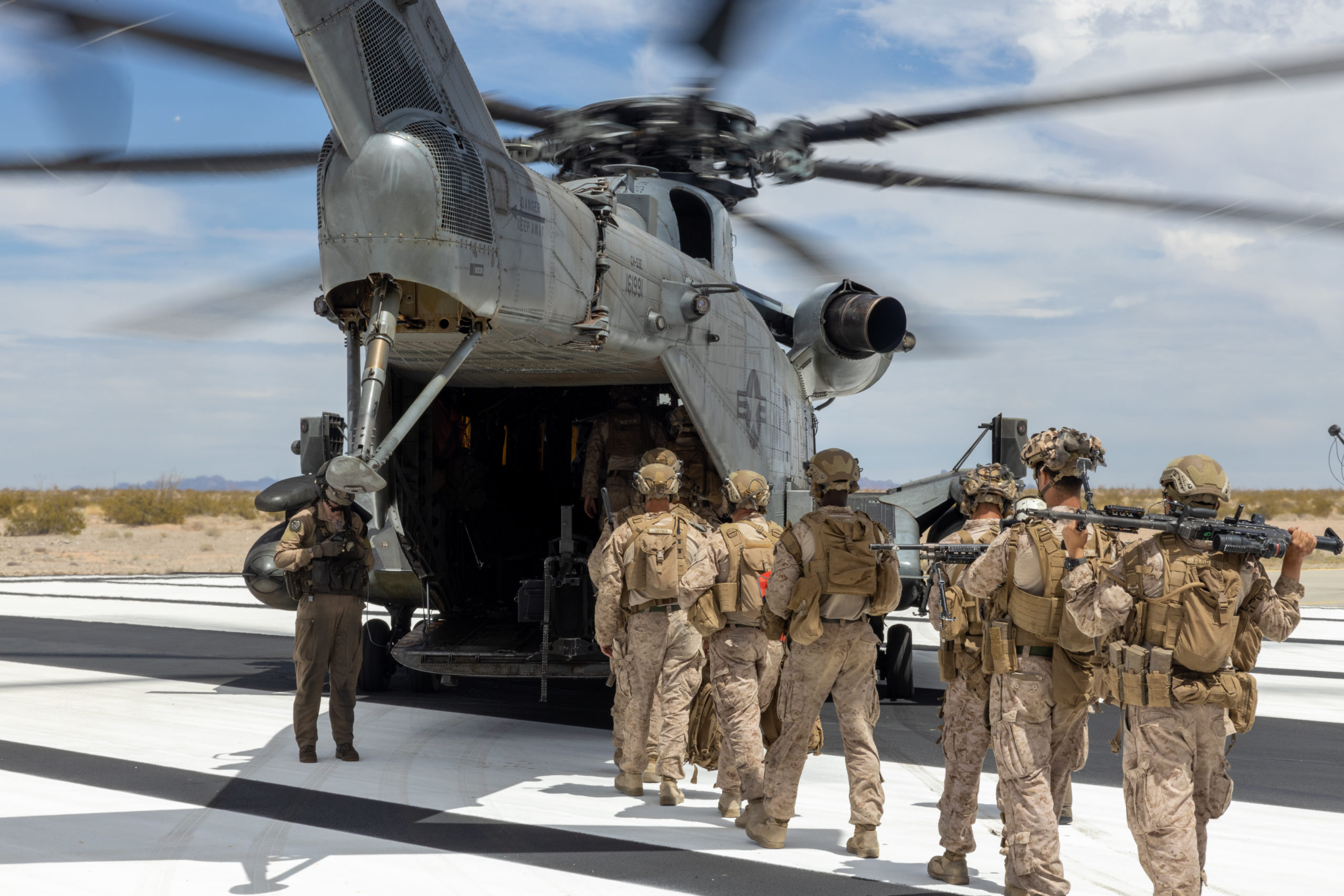
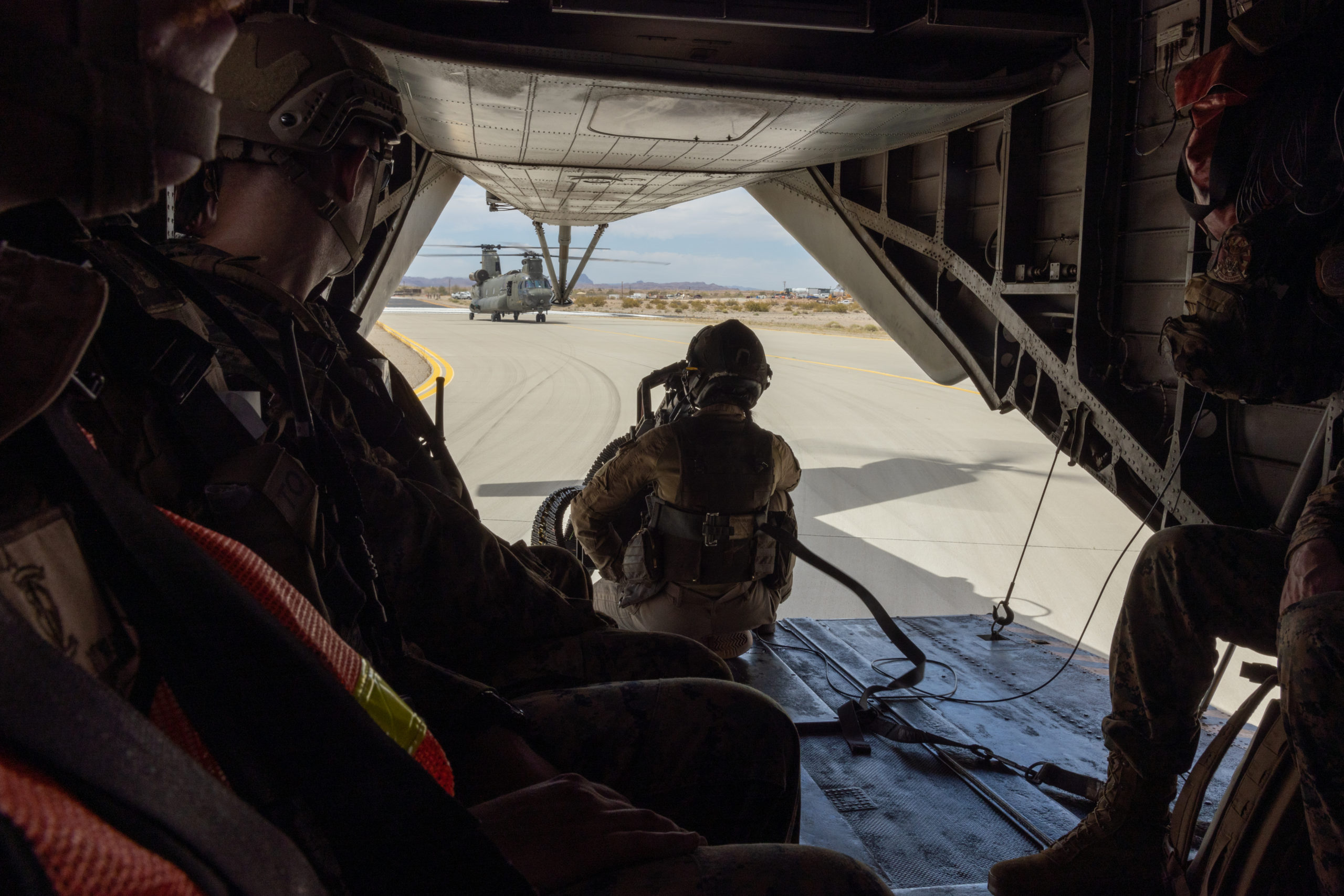
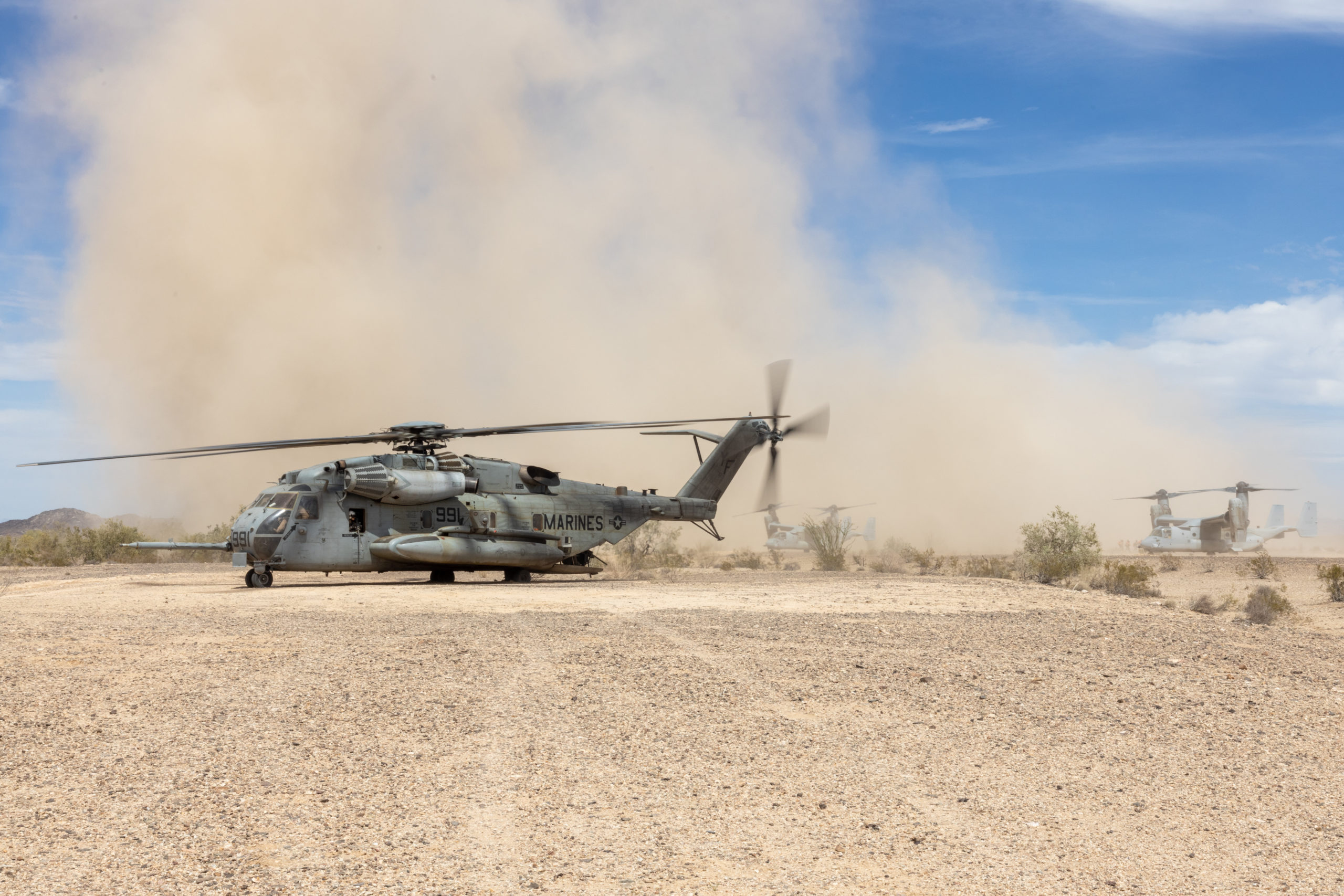


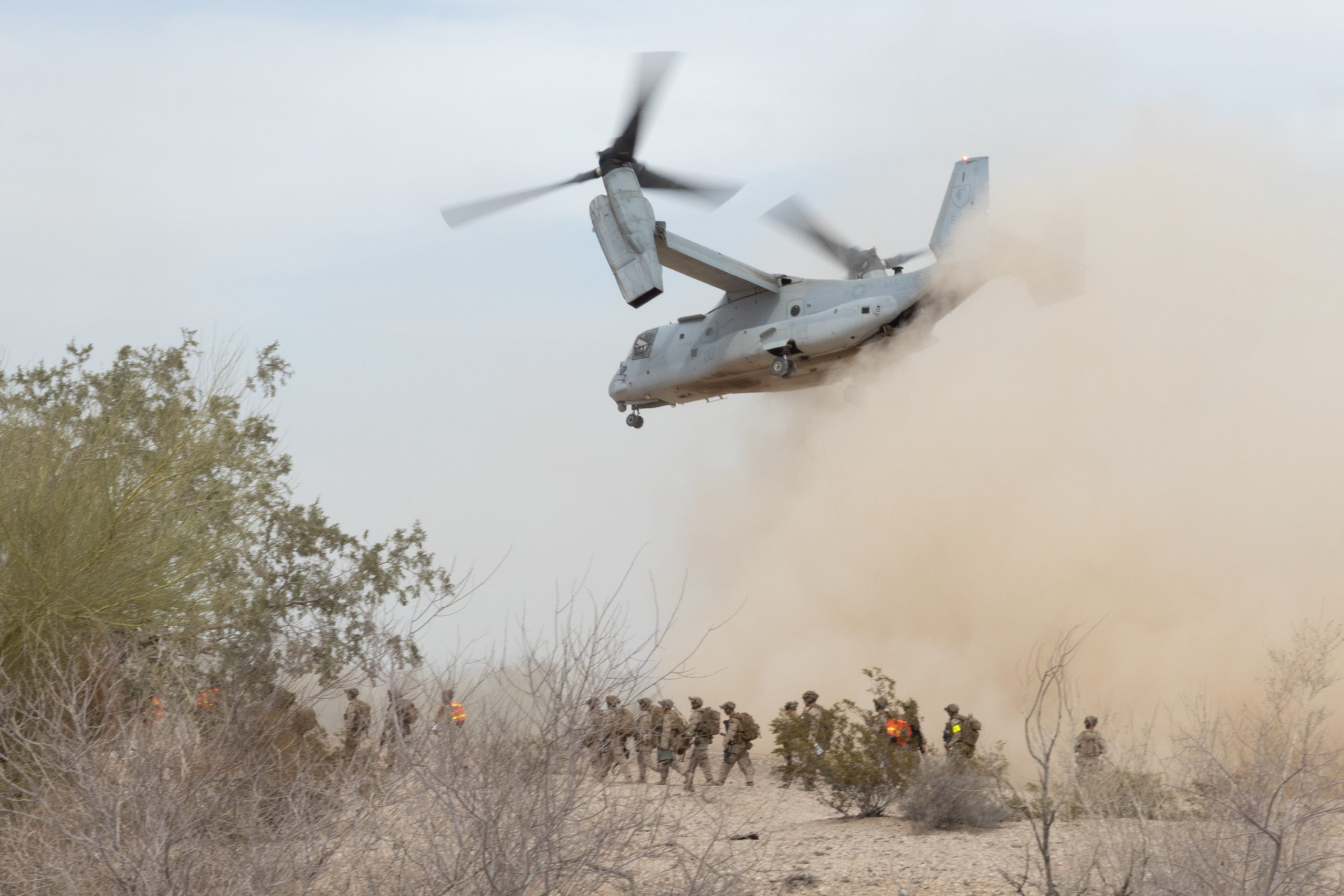
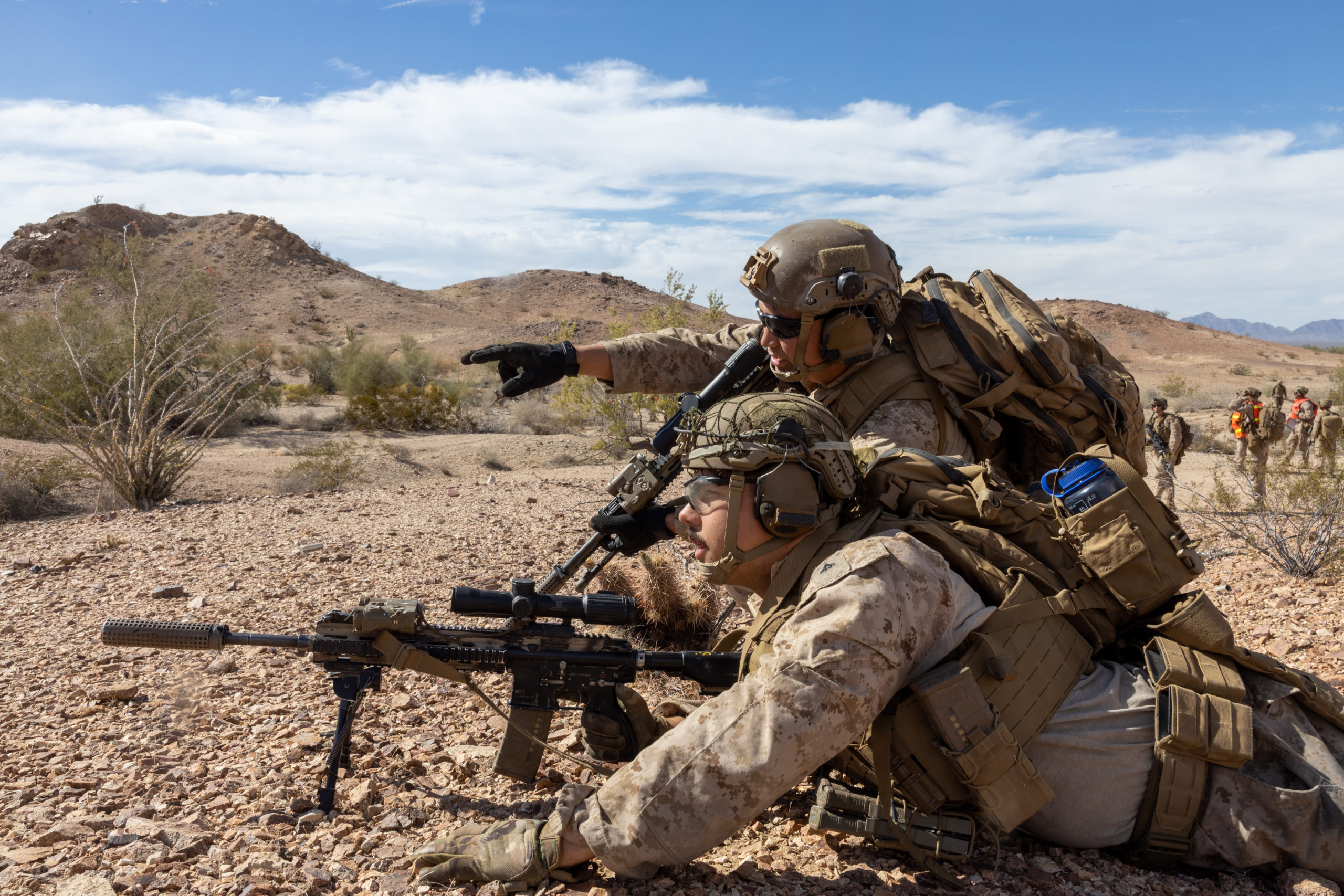
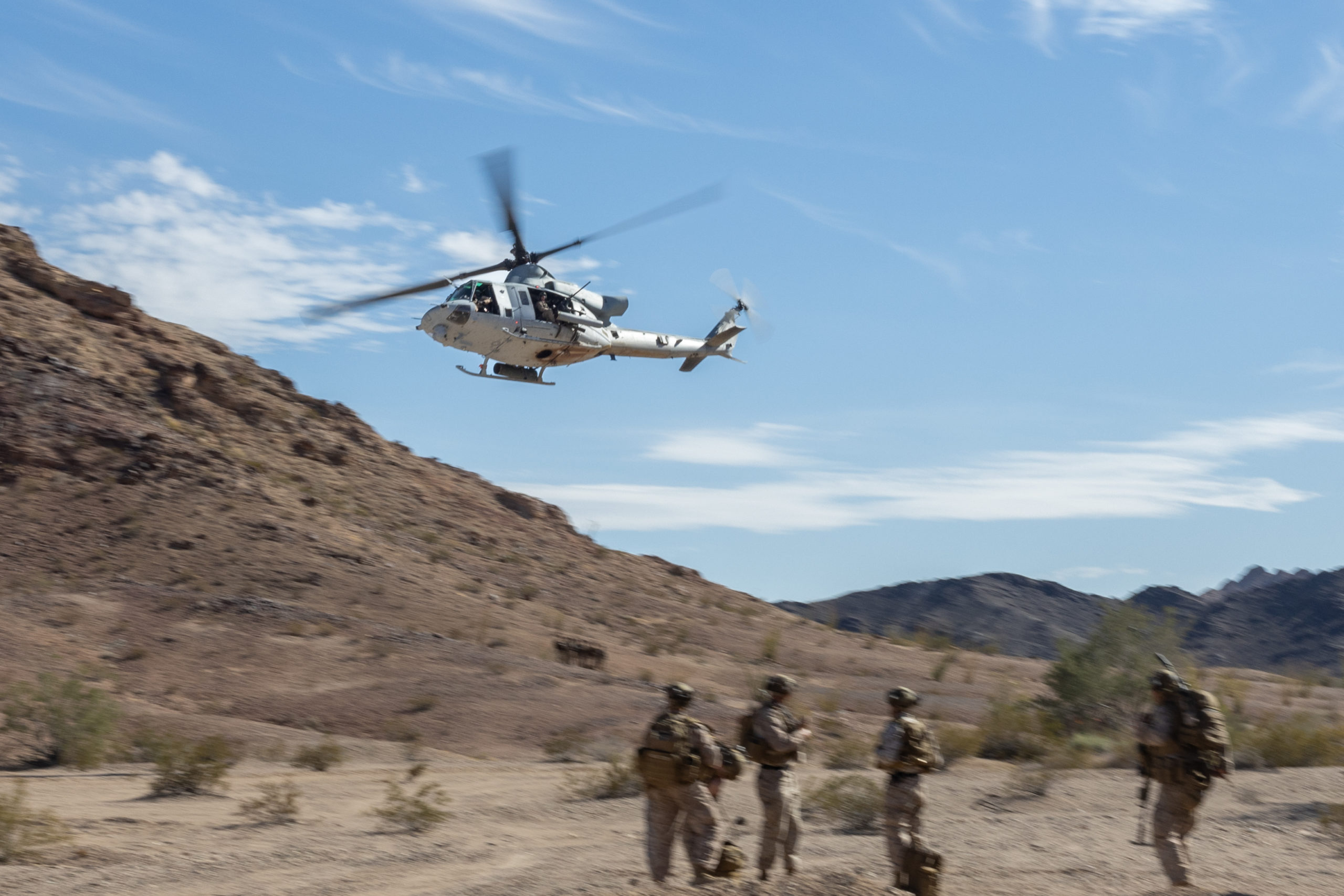
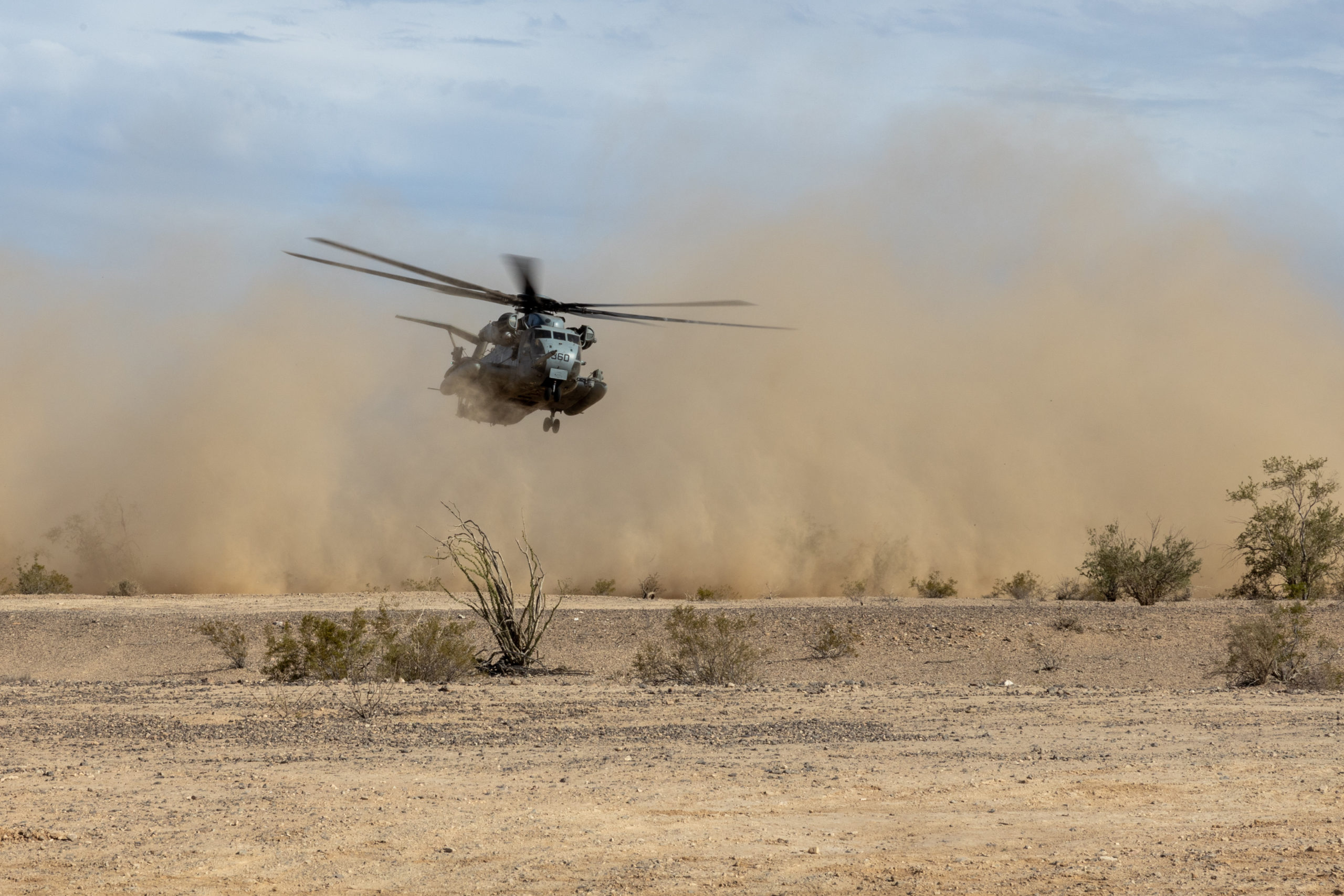
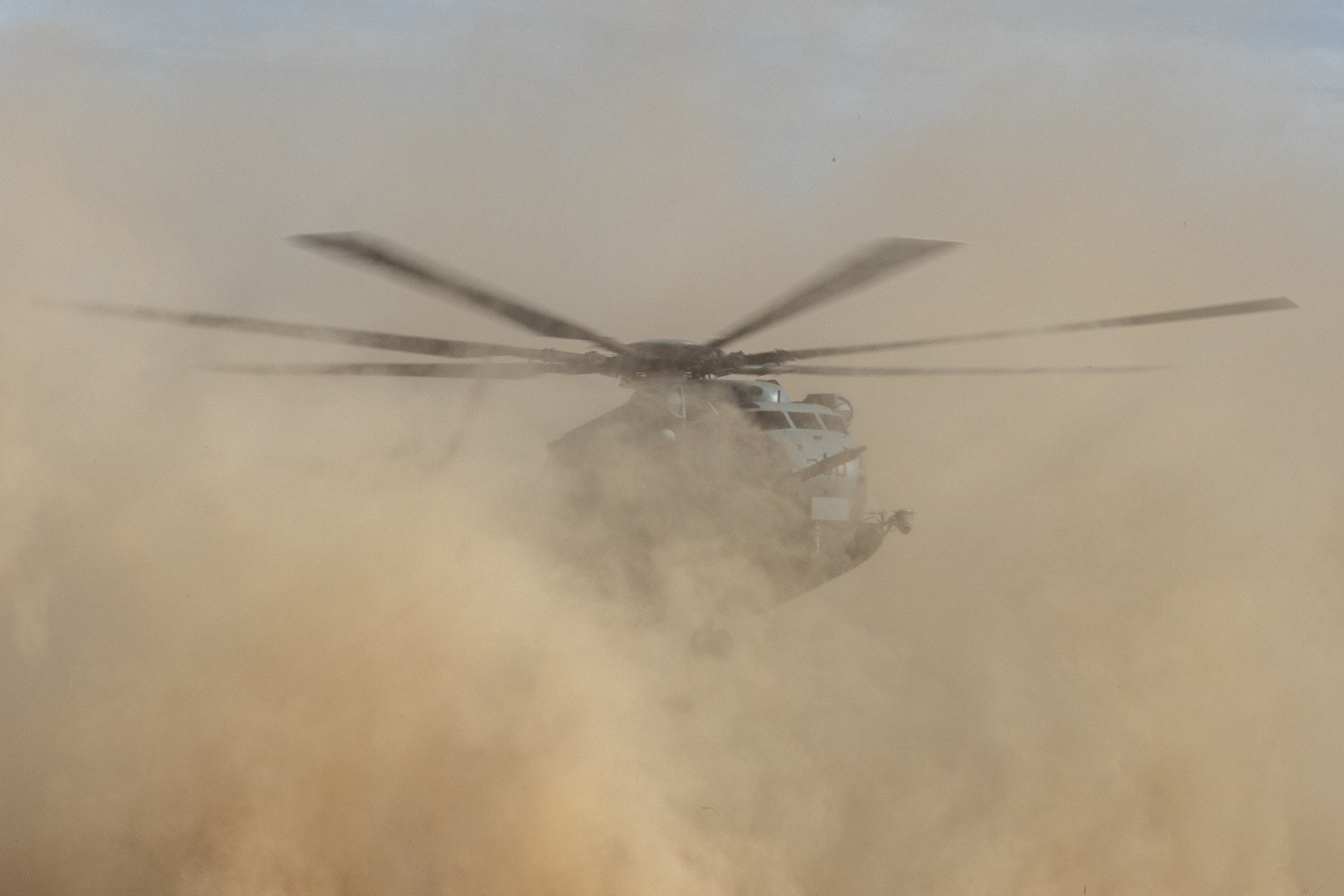
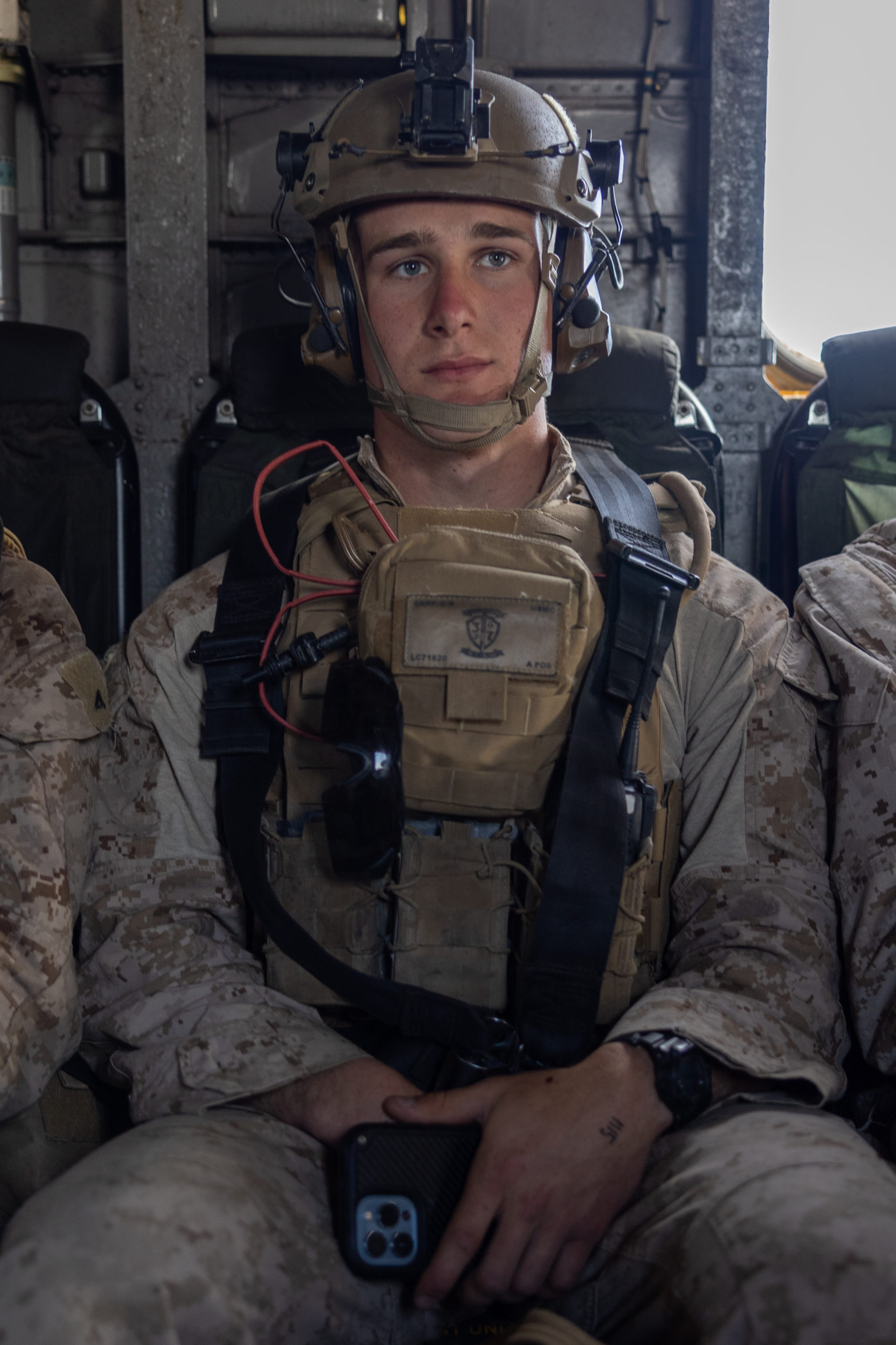
Royal Australian Navy Helicopter Landing Dock HMAS Canberra (L02) received two CH-53E aircraft to transport members of the Australian Army, Malaysian Army and Sri Lanka for the assault phase of Rim of the Pacific (RIMPAC) 2022.
The embarkation of foreign militaries, ability to land U.S. aircraft and deploy together for one common goal has provided proof of the interchangeability between the partner and ally forces.
08.01.2022
Video by Christopher Szumlanksi Commander, U.S. 3rd Fleet
By Robbin Laird
Ever since 2018, MAWTS-1 has focused on the high-end fight component of the full spectrum of warfare. Force distribution is a key part of the survivability against a competitor who has significant firepower and can concentrate fires on relatively fixed positions.
The Marines have worked mobile basing for a long time, such as working forward refueling points and buying the Osprey and the F-35B which can operate off a wide variety of launch and landing points.
But in the past few years, the emphasis has been with regard to how to move more quickly from mobile operating bases and to do so in support of the joint force. This is a capability not only of interest to the Marines and the U.S. forces but core allies as well.
While during my latest visit to Australia where there is enhanced interest, for example, in the RAAF with agile air operations, I spoke with the CO of MAWTS-1, Colonel Eric Purcell about how MAWTS-1 was progressing with regard to training with regard to mobile basing.
He started by noting that given the close working relationship which the Marines had with the Australians, they were focused on training for such operations. Col Purcell mentioned that last November his team met in London with U.S, and partner commands similar to MAWTS-1 in the UK. The USAF and the U.S. Navy along with Canada, and Australia discussed joint learning and training perspectives.
According to Purcell: “At the meeting last November, we looked at a number of different ways in which we can work jointly on problems such as agile combat employment, distributed maritime operations, EABOs (Expeditionary Advanced Base Operations) and F-35 integration. Canada has just recently formally joined the F-35 program, so they were not part of that discussion.”
As the Marines operate Ospreys. F-35s and now CH-53Ks, the Marines are bringing significantly capability to the evolving mobile basing function. In my book published last year on USMC transformation, I underscored the central role which mobile basing is playing in the current phase of USMC transformation. Col Purcell put it succinctly: “We are taking capability which we have had for some time, but focused on how we can move more rapidly from mobile base to mobile base. We have to find ways to make mobile bases, smaller, more distributed and persist for shorter periods of time.”
Another key aspect is that what has been a core competence of the USMC now is becoming a key capability for the wider joint and coalition force. Col Purcell put it this way: “I think the challenge for all of the forces, whether it’s the Air Force, the Army, the Navy, the Marine Corps, or the coalition forces is that the sustainment of distributed forces is challenging. How do we adapt our maintenance, logistical and sustainment systems that have been used to operating from austere bases, but now enhance the mobility of those austere bases?”
During my last two visits to MAWTS-1, I discussed with the ground artillery Marines the challenge of integrating their fires into a joint fires solution when emphasizing force distribution and mobility. I asked Col Purcell about progress in this area. He argued that the joint fires piece is a central challenge being worked. He noted that at the recent WTI 2-23 they were working this hard. One example was incorporating the simulated integration of the future USMC Nemesis ground launch system into joint naval fires.
Part of the enhanced capability for the Marines to support force mobility was the involvement of four CH-53Ks into WTI 2-23. Col Purcell indicated that “during the course we lifted 36K loads with the CH-53K which points to future capabilities. With regard to future capabilities, we can leverage the aircraft’s ability to hold 9 to 10,000 pounds of fuel off on each of the three hooks of the CH-53K. The ability of each of the hooks to carry a fuel bladder is a key advantage for force mobility. One could add that the changes in the cockpit allow for the management of such a load as well. This is a real game changer for us at a time when we and the joint force are emphasizing distributed force logistical support and sustainability.”
In short, MAWTS-1 continues its core mission of supporting the change which the Marines and the joint and coalition force need to pursue. In our 2013 book entitled, Rebuilding American Military Power in the Pacific, we underscored what we saw as the integration being generated at MAWTS-1 a key driver of the kind of military change required to deal with Pacific threats. We still do.

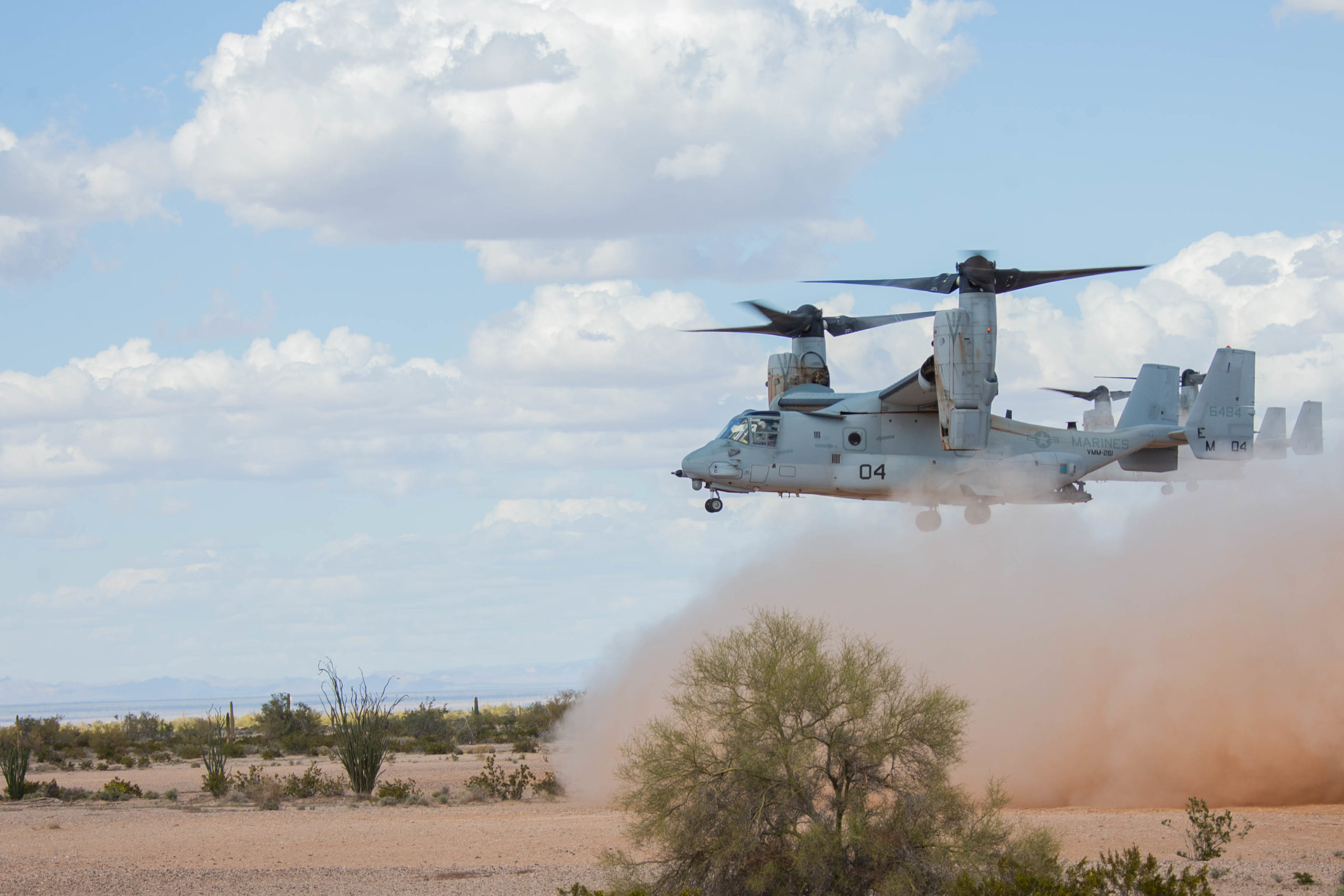
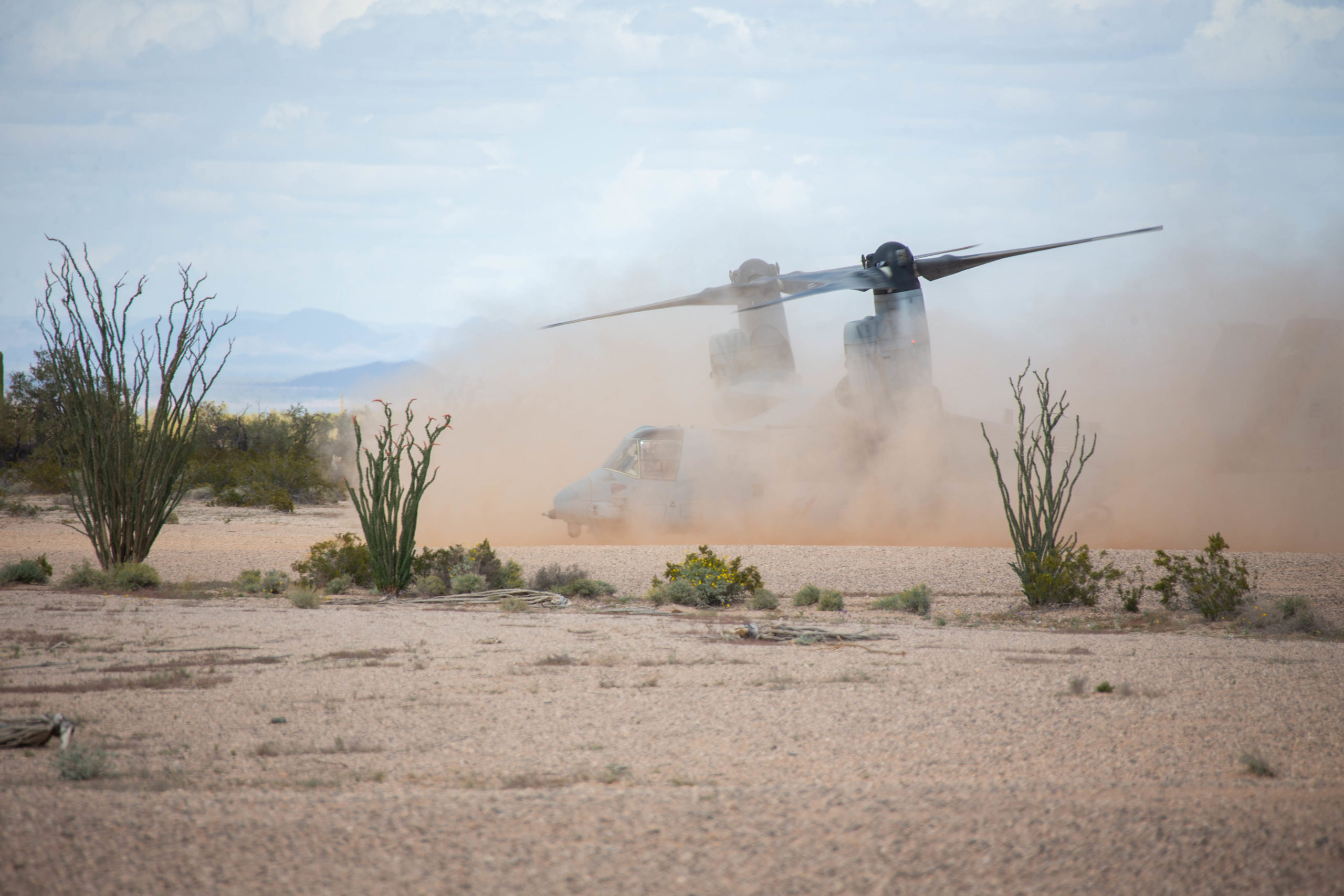
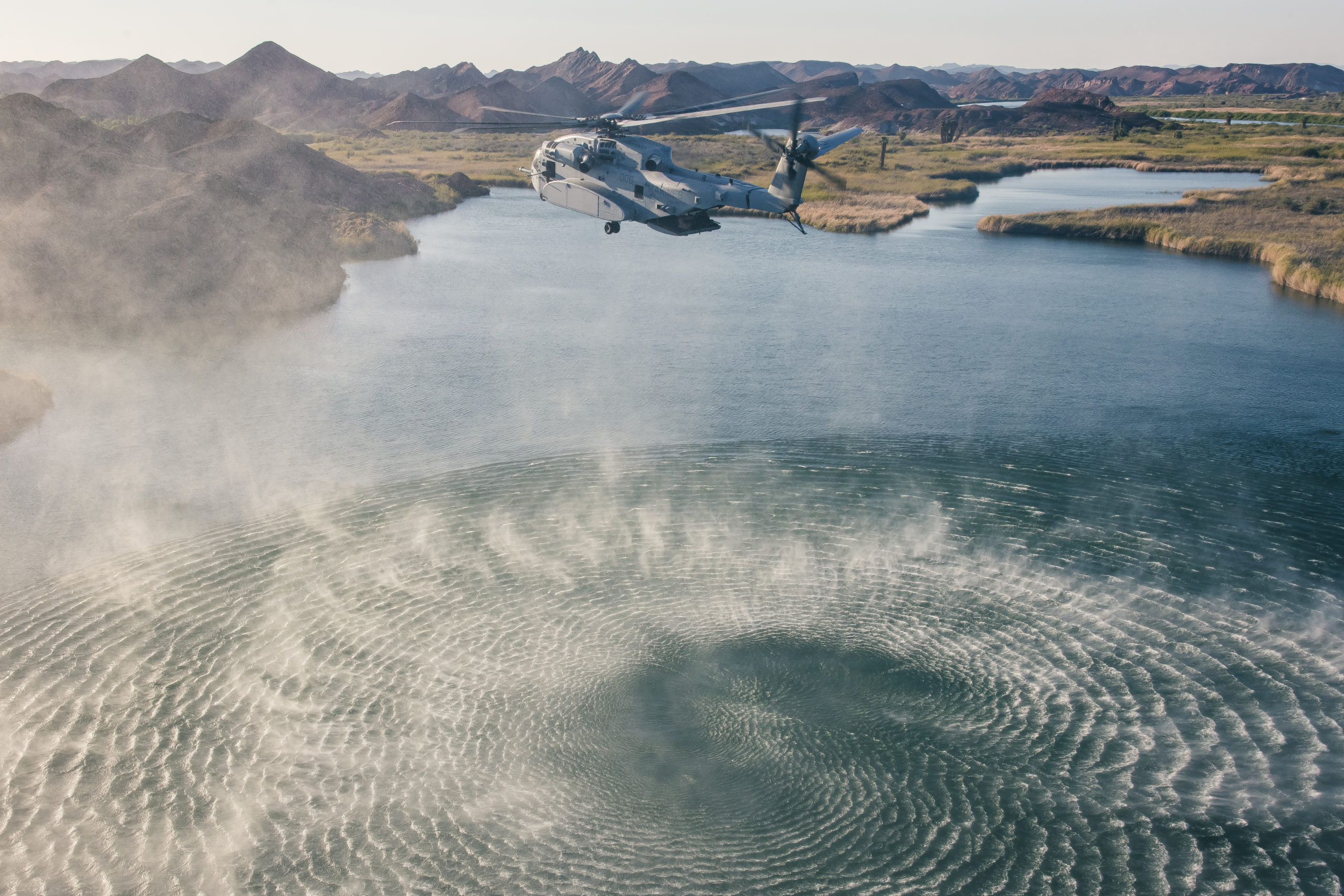
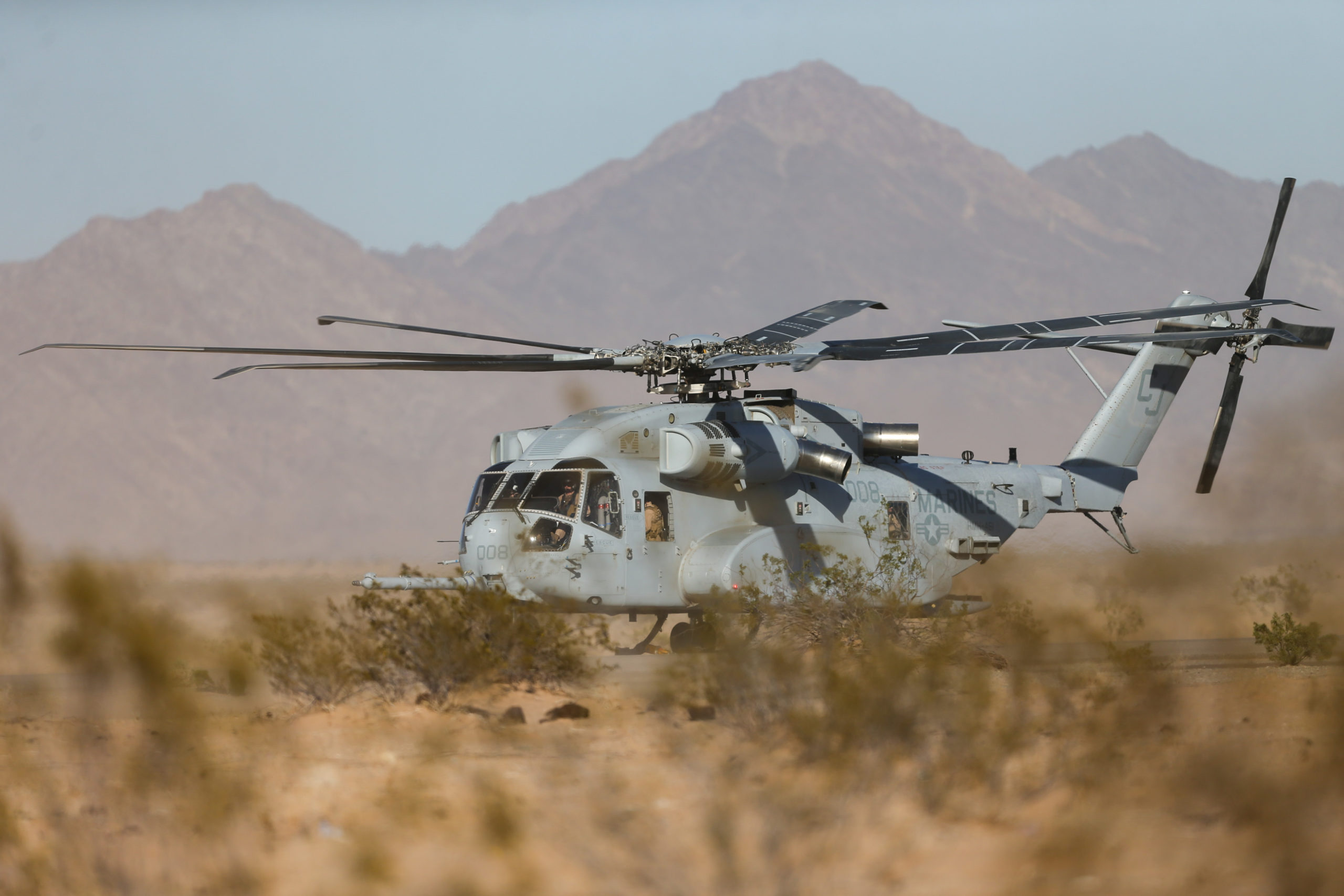
Twenty-six nations, 38 ships, three submarines, more than 30 unmanned systems, approximately 170 aircraft and 25,000 personnel are participating in Exercise Rim of the Pacific from June 29 to Aug. 4 in and around the Hawaiian Islands and Southern California.
The world’s largest international maritime exercise, RIMPAC provides a unique training opportunity while fostering and sustaining cooperative relationships among participants critical to ensuring the safety of sea lanes and security on the world’s oceans.
RIMPAC 2022 is the 28th exercise in the series that began in 1971.
08.07.2022
Video by Petty Officer 2nd Class Joel Mundo
USS Abraham Lincoln (CVN 72)
By Murielle Delaporte
The return of high intensity conflict in Europe is having a major impact on the way NATO countries are reconsidering their military stockpiles policies.
In its first 2023 iDeaS conference entitled ‘’Military stockpiles within NATO: What challenges ahead for the defence industry?’’ held on March 21s and organized by Hawa-Léa SOUGOUNA, Conference Manager, COGES focused on this specific question by gathering three experts: Brigadier General Ivan CARUSO, Bruno CANTIN and Léo PÉRIA-PEIGNÉ.
The return of high intensity conflict in Europe is having a major impact on the way NATO countries are reconsidering their military stockpiles policies, an issue now at the heart of debates within the defense and security community. Between buying on-shelves and systematizing a just-in-time peacetime approach, what have been the different logics underlying stockpiling, supply chain management and procurement decisions among NATO countries?
In its first 2023 iDeaS conference entitled ‘’Military stockpiles within NATO: what challenges ahead for the defence industry?’’, held on March 21s and organized by Hawa-Léa SOUGOUNA, Conference Manager, COGES focused on this specific question by gathering three experts :
The moderator for this panel was Ashley ROQUE, Land Warfare Reporter for the U.S. media, Breaking Defense.
Former head of Italian Army Special Forces Command among other things [1], Brigadier General Caruso highlighted the shift back to collective defense within NATO ever since the invasion of Ukraine by Russian troops in February 2022.
“Threats are fast-moving in the grey zone”, he said, and with collective defense “back in the center stage (…), new solutions are needed”.
The new strategic concept adopted in Madrid re-affirmed the three complementary pillars guaranteeing the security of the Euro-Atlantic area, i.e. “deterrence and defence; crisis prevention and management; and cooperative security” [2].
In this “war of necessity” as opposed to the post-Cold war’s “wars of choice”, NATO does not “drive the timeline anymore” and has to increase its level of readiness in order to properly defend its members’ territories if necessary.
New types of capabilities are necessary to face the challenges of multi-domains operations, which require synchronization, speed and force. NATO must rely in particular on technical advantages wherever it can, whether in “digital transformation (…), autonomous technologies, quantum physics or big data”. But beyond new capabilities, what is also crucial is the development of “a new mindset, new doctrine and new training.”
The General insisted that “we need to be ready for the next war, not the last one,” confirming that the question of military stockpiles is a prominent challenge NATO faces: “ no one could sustain a war with the level of consumption of military hardware and ammunition” that one does observe today on the Ukrainian battlefields.
“If NATO goes back to a Cold war-like challenge, the infrastructure to support high intensity does not resemble the one prevailing after World War II, when armies were able to rely on “large logistical organizations”.
Today “the extensive use of “just in time” to avoid inventories and stockpiles while constantly outsourcing” have led to very little logistics and maintenance capabilities within the armed forces.
It is necessary to take a few steps back to re-build warehouse and depots that do not exist anymore, to restore ammunitions production, but also “ the human resources to store and maintain it ,” as well as “ strategic and tactical transport capabilities and resupply lines. ”
An on-going process, such a reform must balance quantity and quality, as the key focus must be to enhance interoperability and standardization: “ the fact that NATO has been delivering sixteen different types of artillery shells to Ukraine since the beginning of the conflict is not a great example for standardization ,” General Caruso said.
One of the challenge in that regard for NATO commanders is the fact that logistics are a national responsibility, while NATO decisions are taken by consensus: NATO standards are de facto ” a minimum benchmark agreement, ” while NATO can only be a “ facilitator for standardization, ” but has no power of enforcement.
Such a process also needs the support of the whole nation, as “after one year, it is clear the war cannot be fought by the armed forces alone”. The latter need to be regenerated and call on the resilience of each nation: this “ will require a change of philosophy and mindset, because we cannot be late. This will make the difference between defeat and victory ,” he said.
During the Q&A session, he later stressed out that keeping the supply chains going, enhancing mobility, as well as the lines of re-supply and communication, in addition to prepositioning ammunition and equipment were key to gain time. In case of aggression, there will be indeed “no time to react in time.”
Ukraine is a “war of attrition and has become a battle for logistics”, he concluded.
Through both his presentation and Q&A session, Bruno Cantin gave a historical overview of the evolution of NATO multinational logistics, which can be dated back to 1994 when the Implementation Force (IFOR) was sent in ex-Yougoslavia: “ this was NATO’s first major operation for land forces ”, recalls the expert, who was then Commander of a logistics Battalion. “We had no ammunition bunkers and we were very concerned about the safety of our soldiers”.
For him, this was “the first wake up call” prompting NATO to use contractors to support the forces. And so it was done by picking up fuel and food contracts initiated by their United Nation peacekeeping predecessors.
Multinational cooperation in logistics was born out of the need to “ make sure small countries could contribute to operations with combat forces without worrying about logistics (…). The Joint Logistics Support Group was implemented ”. It worked very well since then, in particular in theaters like Afghanistan, where there were “more contractors than foot soldiers (with a ratio of 1.4 to 1)”.
Keeping in mind that the NATO four largest members are better able to sustain their own forces than most other members, Bruno Cantin highlighted the fact that what multinational logistics succeeded to do over the past decades have been to allow smaller countries’ combat forces to be on the frontline, as well as to prompt their ability to develop their own expertise in that area.
The NSPA – NATO Support and Procurement Organization [3] – became more and more involved, in particular with the creation of the SALIS ( Strategic Airlift International Solution [4]) program to lease strategic airlift , while nations took on growing responsibilities and initiatives, such as:
At about the same time as the war in ex-Yougoslavia in the early 1990’s was created the Partnership For Peace (PFP) which proposed to any nation wishing it to develop a bilateral cooperation with NATO. Most nations participating then are today NATO members.
Ukraine joined that program in 1994 and has been participating in multiple committees and forums since then enhancing interoperability through standardization agreements.
Bruno Cantin, who has been dealing with his Ukrainian counterparts in NATO logistics forums since 1999, pointed out that this is the reason why NATO’s current assistance in the area of ammunition was able to take place, as agreements have been in place not only in terms of technical specificities, but also transport safety.
However, the challenge remains for NATO countries to sustain Ukrainian daily fire of seven thousand rounds of ammunition in the mid to long term: “ NATO works with members to provide ammunition, but nations are using their own stockpiles including the ones required for NATO. (…) Each nation needs to reconsider the post-Cold war peace dividends’ attitude, ” he said.
Several NATO initiatives are being bolstered such as the NSPA’s ammunition support partnership or NATO Multinational Ammunition Warehouse Initiative (MAWI [9]) and need to be expanded beyond ammunition.
For Bruno Cantin, these are some of the guidelines, NATO members need to follow to be able to adapt their response to the challenges ahead:
1. Increase military budgets.
2. Speed up the procurement processes.
3. Reform regulations to enhance cooperation.
4. Improve ammunition storage and capabilities.
5. Enhance the sharing of industrial information on future military requirements.
6. Reduce industrial capability gaps.
7. Reestablish stockpiles productions and put an end to the “just in time.”
8. Procure raw materials.
9. Improve high tech developments.
10. Increase the volume of specialized personnel.
Such an effort needs to be collective, as “more allies have met the [10] requirement in defense investment ”, because “we are stronger together”. And that is the good news…. [3]
Léo Péria-Peigné started his presentation by explaining the evolution of French military stockpiling policy, which has been matching the ones of its neighbours. The end of the Cold war and the era of peacekeeping missions led to the shrinking of military budgets, and in the case of France, to a succession of structural reforms within the armed forces, starting with their professionalization and the end of conscription.
Looking for savings meant adopting the “Just in time” mode as far as stockpiling went. And it is only in 2015 with the terrorist attacks that French political authorities became aware of the necessity to “repair” procurement: “a slow reparation program started” …
With Ukraine, the question of military stockpiles entered the “mainstream news”, but real change has not yet occurred everywhere, just because inflation and access to raw materials are impacting how much “real money” is to be allocated to that area.
The expert quoted Poland as a nation having started to re-initiate mass production for real, and Rheinmetall as a company doing the same. He also highlighted the cooperative mechanisms now existing between NATO and the European Union to replenish stocks and allocate supplies to Ukraine.
The IFRI researcher stressed out the fact that while most decision-makers focused on building more high-value and complex assets, the thinking was that “ they could always buy on shelves on the market ” the supply they would be needed in case of crisis.
That worked as long as crises were regionally limited, but with a global crisis, the market became also a source of competition and tension and access is not as easy as imagined then. “Today crises are as globalized as the markets”, he said quoting the explosion of the powder demand on the market as an example.
The whole logic of the past ten to fifteen years must be reversed with a focus on reshoring production. Positive change has occurred, but Léo Péria-Peigné sees no “systemic change” yet and expressed the worry that once the war in Ukraine will be over, it will be a return to business as usual in this area.
As we rebuild our production capabilities, we have to keep in mind the South Korean and Turkish models, which are very present on the Ukrainian battlefield.
As we rebuild our production capabilities, we have to keep in mind the South Korean and Turkish models, which are very present on the Ukrainian battlefield. Unlike traditional arms producers, both countries can mass produce and do not need to export to produce military equipment in the segment of medium tech hardware (including 4.5 generation aircrafts).
These “national arsenal model” newcomers on the globalized weapon market are definitely a signal of change with a clear impact on the way we might re-think our industrial strategies, the researcher concluded as he wrapped up the Q & A session.
[1] See general Caruso’s biography >>> https://www.nato.int/cps/en/natohq/who_is_who_211536.htm?
[2] https://www.nato.int/cps/en/natohq/official_texts_196951.htm
[3] https://www.nspa.nato.int/
[4] https://ac.nato.int/archive/2020/SALIS_Update
[5] https://www.army.cz/en/armed-forces/organisational-structure/general-staff/multinational-logistics-coordination-centre-87194/ ;
[6] https://www.nato.int/cps/en/natohq/topics_50104.htm
[7] Author’s note : The Strategic Airlift Coordination Cell is co-located with the Movement Coordination Centre Europe (MCCE) based in Eindhoven, the Netherlands. (See: https://www.nato.int/cps/en/natohq/topics_ 50107.htm ; https://www.nato.int/cps/en/natohq/topics_50107.htm)
[8] https://www.nato.int/cps/en/natohq/news_146571.htm?selectedLocale=en
[9] MAWI est issue d’une initiative de la Belgique (voir : https://www.nato.int/nato_static_fl2014/assets/pdf/2021/6/pdf/2106-factsheet-mawi.pdf)
[10]https://www.nato.int/cps/en/natohq/topics_67655.htm
This article was published on 25 April 2023 on the Eurosatory website section “Wide Angle Defense and Security.”
Featured Photo: Training of an Ukrainian soldier by a Norwegian instructor in the United Kingdom © NATO, March 24th, 2023